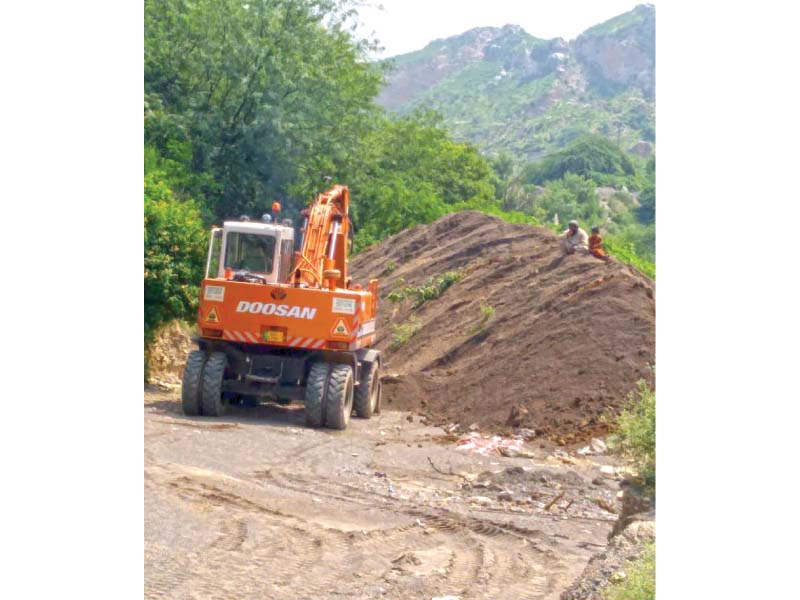
The citizens are facing extreme difficulties as all related institutions have taken the deadline of September 3 as the final word and are carrying out repairing work at turtle’s speed.
Apart from this, water theft from open water channel from Khanpur Dam to Sangjani water filter plant has become a routine practice. As the stealing attempts have become regular, the fortification wall of the water channel has gone weak due to the digging done for the water transfer.
All stakeholders’ including Capital Development Authority (CDA), Rawalpindi Cantonment Board (RCB), Chakalala Cantonment Board (CCB) and Water and Sanitation Agency (WASA) have also turned a blind eye to repairing of the water channel.
Bids received for first part of Diamer-Bhasha
The channel undergoes silt cleaning once in a year only to gain media attention, which worsens the situation because a lot of water is wasted during the entire process.
All the institutions have converged focus on Sangjani filtration plant from where they receive their due share of water.
It is interesting to note that the related institutions have not even established a controlling authority for the project which is expected to fulfill water needs of twin cities for almost 20 years. CDA, being the acting controlling authority, receives written complaints from other institutions every other day. Due to the lethargy of the institutions, the citizens are compelled to reach out to expensive water tankers to fulfill their needs.
Earlier, a breach in the left embankment of Khanpur Dam, supplying water to Sangjani filtration plant on Friday obstructed the water supply to various areas of Rawalpindi and Islamabad.
The 19.6km-long channel was damaged due to land sliding followed by the recent downpour.
The cantonment boards had directed the citizens to be careful in consumption of water and had also instructed them to store it until the channel was repaired.
RCB spokesperson had said that the repair work would be completed by September 3.
The areas facing water shortage after accident included Dhoke Hassu, Dhoke Matkal, Ratta Amral, Pirwadhai, Pindora, Double Road, Shamsabad, Mullpur and Sadiqabad.
The dam is a source of drinking water for the twin cities of Rawalpindi and Islamabad. Currently, 14.5 million gallons of water daily (MGD) is supplied to the CDA and eight and nine MGD to WASA and Rawalpindi Cantonment Board (RCB), respectively.
Water charges hiked
The residents of railway co-operative housing societies decry the administration’s decision to hike annual water charges to Rs7,200.
Following this, every household would now be liable to pay Rs600 per month in line with the charges.
Meanwhile, all nine housing societies under Pakistan Railways are already suffering from a severe water shortage, dilapidated roads and poor cleanliness. However, the condition of societies 5, 6 and those adjoining to Chakala Railway Station are comparatively in a better position in terms of water supply.
Flood wreaks havoc in Rajanpur, Vehari
It has also been noted that elected representatives in these societies’ have also become silent on the exorbitant rise.
The officials of societies’ administration were of the view that selling and purchasing in societies was facing a downturn while they had no other source of income than water charges. Owing to this, they said that annual water supply charges were hiked from Rs1,700 to Rs7,200 to cover expenses and generate revenue.
Meanwhile, the residents have rejected hiked charges and demanded that the administration reverse the decision. They said that the administration should initially ensure an uninterrupted water supply and improve cleanliness, dilapidated roads and street lights in the societies.
Further, cantonment boards are charging their residents with an amount of Rs225 monthly for a 5-marla house contrary to monthly water charges of Rs98 fixed by WASA.
Published in The Express Tribune, August 25th, 2019.

















COMMENTS
Comments are moderated and generally will be posted if they are on-topic and not abusive.
For more information, please see our Comments FAQ